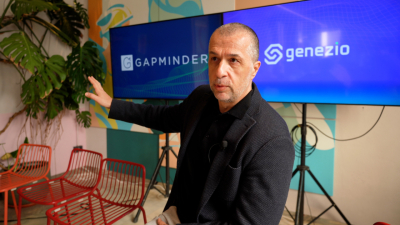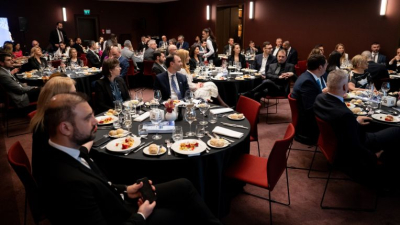“This is not a problem of breaking the agreement with the IMF, as the parameters on the first six months show Romania remained within the agreed target,” explained Basescu, adding however that Romania can anticipate it will not be able to fulfill the parameters fixed for December 31, the most serious reason being that the economic downturn will exceed the prognosis of – 4 percent.
The president explained that, in the case of an economic contraction of more than – 4 percent and smaller budget cash-ins, the budget gap will be larger. Therefore, Romania has to find solutions to compensate the gap and remain below the 4.6 percent of the GDP, to enter the Eurozone on January 1 2014.
Basescu also said that the IMF will be very understanding as the fund's representatives are specialists and Romania can demonstrate it is not to be blamed for the economic plunge. The causes are, according to the head of state, the downturn of external markets and the reduced internal consumption, because Romanians have become more cautious and are saving money.
The head of the International Monetary Fund (IMF) mission to Romania, Jeffrey Franks, declared today at the end of the talks held at the Finance Ministry that the IMF representatives are willing to be flexible in negotiations, given that Romania's economic status has worsened.
At the end of the talks held last evening between the representatives of the Romanian governing coalition an those of the EC and IMF, an official declared for NewsIn that the representatives of the IMF estimate the economy will go down by 8 percent this year and, under these circumstances, they would agree with a budget gap of 8 percent of the gross domestic product (GDP) if the executive slashes additional expenses.
The IMF mission, led by Jeffrey Franks, arrived in Romania on July 29 to evaluate the degree to which the country fulfilled the commitments taken through the agreement signed in March.
The mission will end on August 10, at which time the conclusions will be announced. The IMF officials will also draw up a report, which the IMF board will discuss at the end of September.
The institution will then decide whether the Romanian authorities carried out the specific tasks and whether the second installment of the loan, worth 1.9 billion euros, will be delivered.
Romania sealed a 19.95 billion euros financing agreement with the IMF, the EC, the World Bank, the European Bank for Development and Reconstruction and the International Finance Corporation.
Citeste si:
Calculator Salariu: Află câți bani primești în mână în funcție de salariul brut »
Te-ar putea interesa și:



















































































![HR [PLAY] Tech Workout - 11...](https://www.wall-street.ro/image_thumbs/thumbs/973/973fe0a3888d417feff63de42e814180-260x260-00-65.jpg?v=1713482669)









